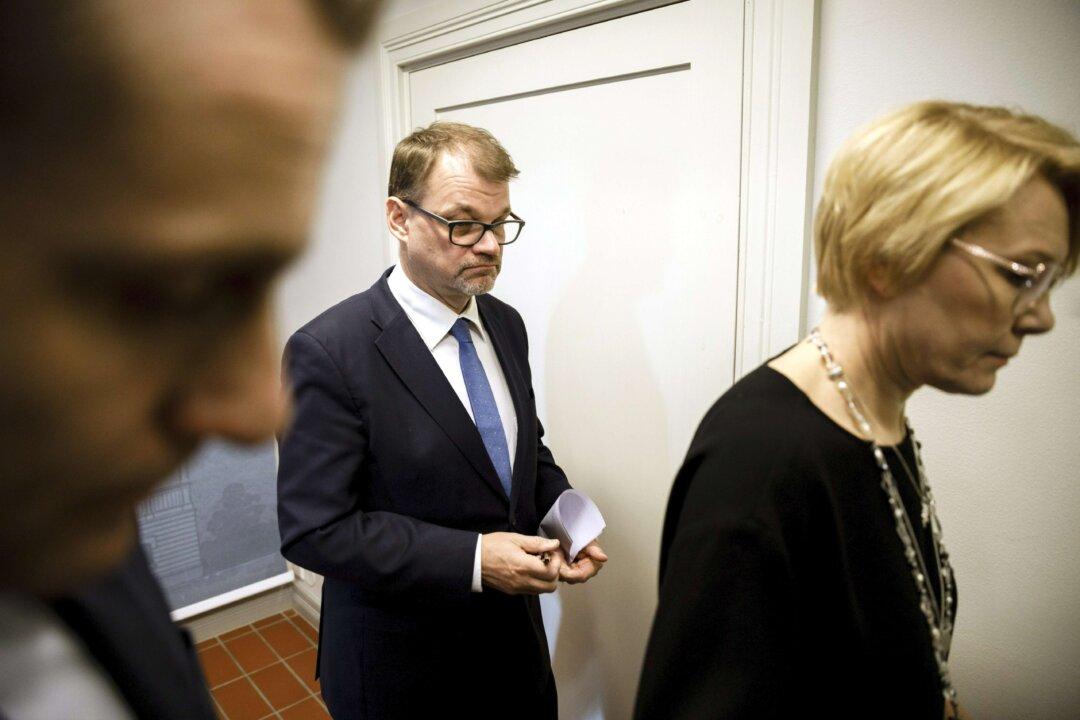HELSINKI—Finland’s coalition government resigned March 8, a month ahead of a general election, saying it couldn’t deliver on a health care reform package that is widely seen as crucial to securing long-term government finances.
Health care systems across much of the developed world have come under increasing stress in recent years as treatment costs soar and people live longer, meaning fewer workers are supporting more pensioners.





